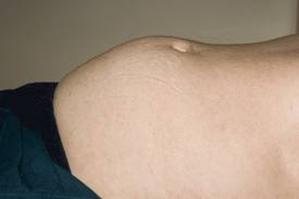Learning objectives
|
Introduction
Urinary retention can be defined as a post-voidal urine of more than 100 ml. Acute urinary retention is a common complication of acute stroke but it usually improves over time. It can occur immediately after the stroke or later, and affects both men and women. It often improves with time but in the initial period can lead to embarrassment, loss of dignity, discomfort and skin and other issues. Catheterisation can lead to infection. Early identification and sympathetic management is key. Ineffective voiding demonstrated by post-void residual volumes is common in elderly patients. In these patients, the onset of post-stroke detrusor hyporeflexia can precipitate retention.
Aetiology is often multifactorial
- Detrusor areflexia is the commonest cause after stroke in those without prostate disease
- Prostate enlargement in men : check history
- Medications (anticholinergics, opiates, diuretics, antispasmodics, TCAs, antihistamines)
- Constipation
- Immobility (unable to stand or even sit up for urination, or sit on the toilet)
- Discontinuation of medications such as alpha-1 receptor antagonists
- Embarrassment - using bottles or commode on open wards
- Poor cognition or aphasia
- Diabetes and neuropathy
Clinical
- Pre stroke: Is there a history of nocturia, poor stream, hesitancy, haematuria
- Signs of UTI e.g. fever, malaise, confusion, loin or suprapubic pain, frequency small amounts
- Check abdomen for enlarged bladder, exclude faecal impaction by PR if needed

Investigations
- FBC, U&E, LTS, CRP
- Urine analysis, microscopy and culture
- Bladder ultrasound will show large volume post attempted voiding
- Detrusor hyporeflexia can be seen on urodynamic studies but is not done usually

Management
- Most patients regain bladder function within the first few weeks after stroke and this goes along with other improvements in mobility. In some Urinary catheterization may be necessary to relieve acute retention, but is also associated with significant risks. Catheter-associated UTI is the most common nosocomial infection in hospitals. Infection risk is related to the longer a catheter is in place so early removal is warranted when possible. Intermittent clean catheterisation is the best option in the acute period for up to 6 weeks after stroke.
- Look for and treat any UTI, Constipation, stop drugs that cause retention where possible. Allow patients the time and privacy to pass urine. Natural voiding position. Warm shower. Complete a bladder chart. The actions of the stroke team doctors and nurses is to help prevent and minimise the risk of infection while things improve naturally.
- Longer-term catheterisation should be limited to patients where precipitating factors cannot be addressed. Retention persists in those with diabetes and prostatic hyperplasia. Some patients with retention could develop incontinence during recovery because of the alteration of detrusor function from areflexia to hyperreflexia with time. Urology referral may be useful where there is prostate disease. This is less likely to be the cause of retention if there were no prostate symptoms before the stroke.
References
| Note: The plan is to keep the website free through donations and advertisers that do not present any conflicts of interest. I am keen to advertise courses and conferences. If you have found the site useful or have any constructive comments please write to me at drokane (at) gmail.com. I keep a list of patrons to whom I am indebted who have contributed. If you would like to advertise a course or conference then please contact me directly for costs and to discuss a sponsored link from this site. |